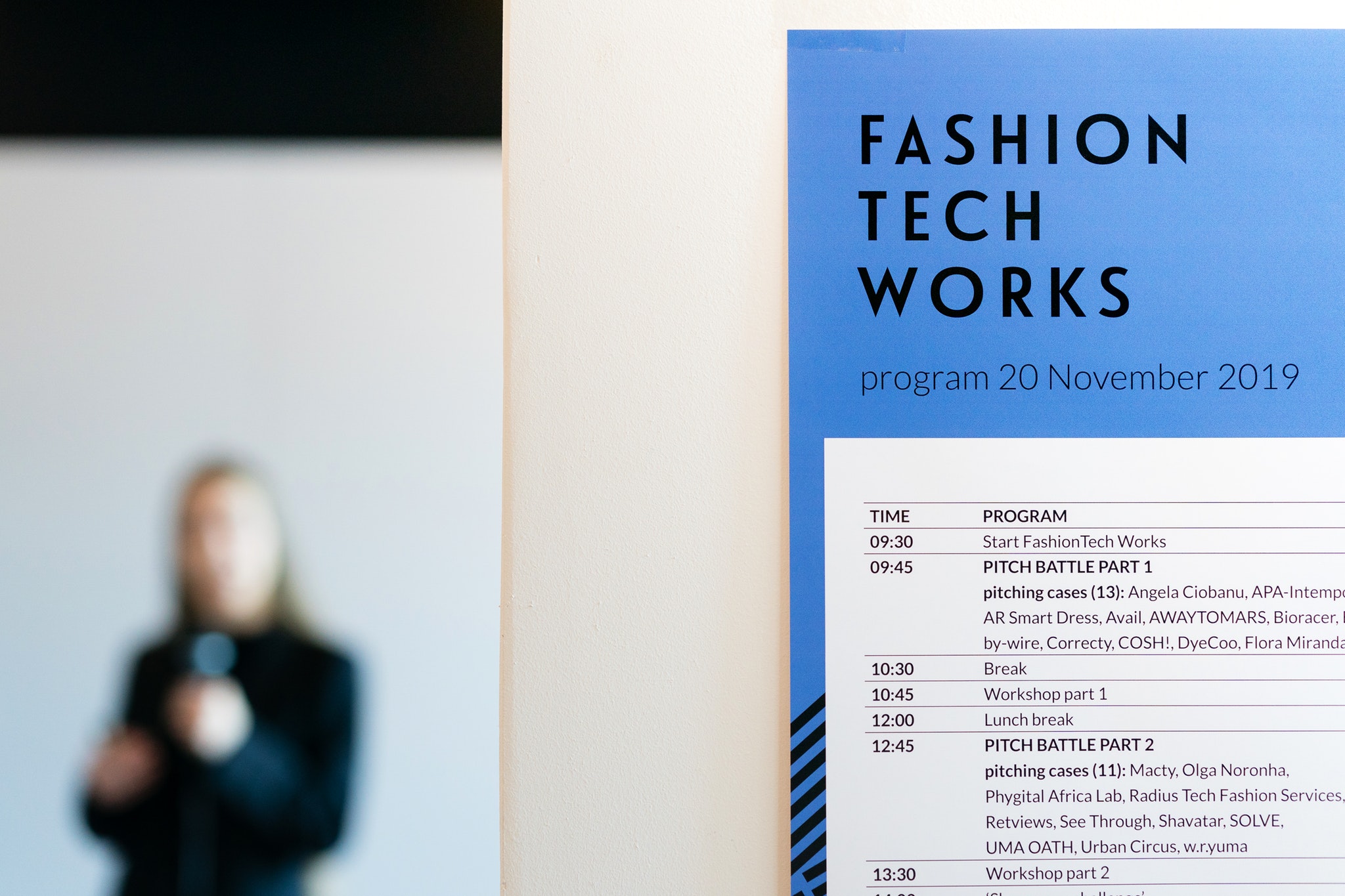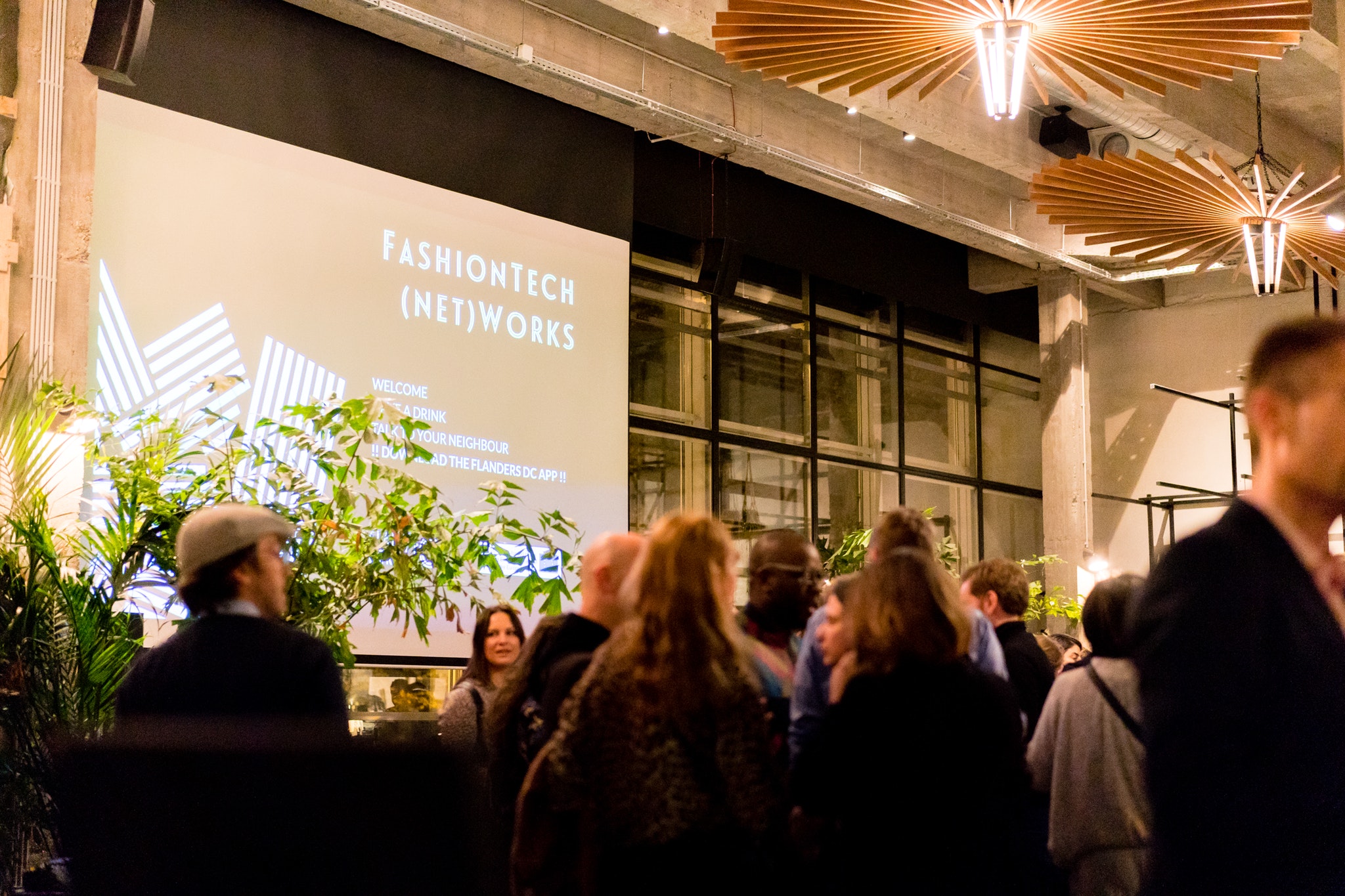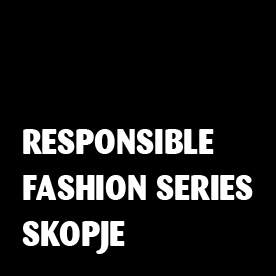“TECHNOLOGY IS THE KEY DRIVER OF CHANGE IN THE FASHION INDUSTRY”
Words by David Devriendt
How will consumers shop in the future? What will become the newest sustainable technology? On November 20, Flanders DC brought, in the framework of FashionTech Works and United Fashion, 24 promising companies from 11 countries to Antwerp to share their vision and their thoughts on the future of circular fashion, shopping and wearable tech. A recap
It’s no secret that retail and sustainability present quite a challenge to the fashion industry. Moreover, fierce competition forces brands to reflect on how change can help them stand out or even completely reinvent themselves. Throughout, technology is a driving force as well as the perfect means for companies looking to overcome today’s and tomorrow’s obstacles. This also became apparent from the international program FashionTech Works, hosted by Flanders DC in Antwerp last month.
24 participants from 11 countries each got 3 minutes to pitch their project to a six-member jury. In the evening, they could continue sharing their vision as well as expand their network at FashionTech (Net)Works, a cocktail party attended by the local fashion and tech community, too. Pressing problems and their solutions were always the starting point.
Emphasis on service over product

The future of shopping and retail is one of the major issues the fashion industry is currently grappling with. Especially in our western society, the consumer has everything his heart desires.
The consumer is not looking for more products, but for services to make his life easier. This phenomenon of servitization is rapidly gaining importance. The Belgian startup Shavatar, a spinoff of the University of Antwerp and research center Imec, provides us with a beautiful example. “Our ambition is to reduce all size-related returns in e‑commerce”, says Geert Mertens, the driving force behind Shavatar. “We’ve developed a model that can accurately predict the 3D body shape, based not on scans but on eight simple parameters the consumer has to fill out. This not only enables us to offer size recommendations; the data we collect also constitutes valuable feedback that the company’s design team can use to optimize their fit.” Shavatar hopes to get its launch version ready by the first
quarter of 2020.

FashionTech Works allows young startups like Shavatar to get in touch with other players who are open to cross-fertilization – a huge plus, obviously. One of these players is MACTY, a Belgian company that relies on artificial intelligence to facilitate the consumer’s search for the right items on e‑commerce platforms. The shopper no longer types in keywords but uploads a picture. MACTY compares this image to the web shop’s offer and displays matching products. A win-win for everyone involved, because the retailer’s conversion rates are also sure to increase.
RetailDetail’s business unit manager Katrien Huygens oversaw the workshop on the future of shopping that was next on the program. According to her, innovation is the message, but everything depends on public support. After all, no matter how hard a company pushes a certain technology, ultimately it’s the end consumer who decides whether it will catch on or not. Is he ready for those wild ideas to begin with? All participants agreed that this certainly is a valid question to ask.
Circular systems looking to scale up

When it comes to sustainability, the role of fashion tech should not be underestimated either. The FashionTech Works participants who are active in this area mainly focus on finding solutions to cut the environmental impact of the linear fashion system that has been in place for years now, as well as on setting up circular ecosystems instead. w.r.yuma is an interesting case in point. This Belgian brand transforms post-consumer recycled plastics into 3D printed sunglasses that can, in turn, be disassembled at the end of their lives. “Now we concentrate on collaborating with international fashion giants,” co-partner Lenja Doms reveals, “so we can bring the principles of the circular economy to those linear fast fashion companies as well.”
DyeCoo delivered the winning pitch, convincing the 850-strong audience during a pitch battle with APA Intemporal during Fashion Talks the day after. The Dutch company developed a non-toxic, safe, circular and inexpensive technology to dye polyester with reclaimed CO2. The icing on the cake? The process involves not a single drop of water. “It is high time we turned the supply chain of the textile production around and switched from wet to dry processes”, says DyeCoo’s Femke Zijlstra. “We should join forces before it’s too late.”
Loud call for collaboration and transparency
Moderator Evelyn Mora, who founded the sustainable Helsinki Fashion Week and works as a consultant for Tesla and the European Space Agency, among other organizations, thinks the key question is: how to balance business and sustainability? Servitization holds the answer, she believes. “We don’t need more products. We need to focus on the real, big issues and develop services that cater to these needs. There’s a demand for that, both in B2B and B2C markets.” COSH!understood that perfectly. The Belgian platform helps customers who can’t see the wood for the trees, guiding them towards sustainable shops. Using numerous filters, you can plot your personalized shopping route with COSH!. Another beautiful example: German company LUKSO used blockchain technology to create a digital passport for physical products. The ID contains information on the origin of the resources, the factory where the item was made, its previous owner, and so on. Technology has an important role to play in making fashion more transparent – which in turn is a prerequisite for sustainability and respecting human rights.
Invisible wearable tech
This doesn’t mean that products can’t be a driving force to solving the modern consumer’s problems, though. Take Tessenderlo-based company Bioracer, which specializes in aerodynamic and thermoregulating sportswear for skiers, cyclists and triathletes
Or think of APA Intemporal, a Brussels brand that teamed up with a Swiss lab to create raincoats that can be perfectly worn on sunny days, too. The coats feature a combination of technologies that were hitherto only used to service Olympic athletes: on the one hand, a waterproof coating that behaves like a leaf, repelling water and dust, and on the other, a thermoregulating membrane that adapts to the wearer’s body temperature.
No one possesses the truth and no one knows what the future will bring – and these 24 companies are obviously no exception. But they do give us a glimpse of how it might evolve, in a positive way, and perhaps they each hold a crucial piece of an incredibly complex puzzle. Their task? Keep talking to each other, combining the smartest ideas and creating new platforms, for instance to inform the consumer. So, plenty of work to be done! Or to quote the final words of an inspiring pitch: “The future is creation.”
Words by David Devriendt
Images by Juan Wyns




